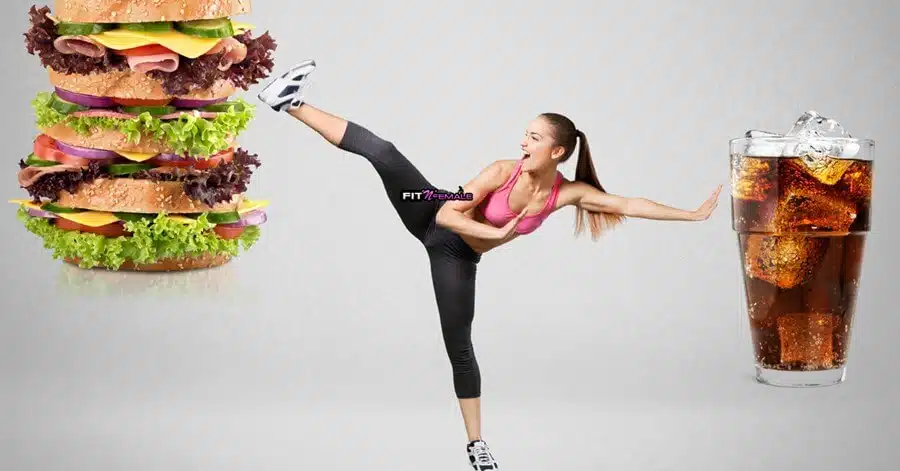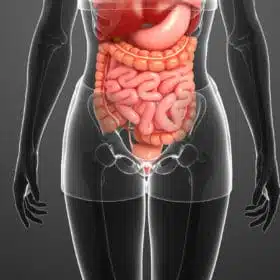If you are desperate to lose weight, but are fed up with completely overloaded diet plans that seem to be more concerned with molecular biology than with your actual concern, you have come to the right place. In this article, we will prove to you that losing weight is not rocket science, but is in principle very simple. If you take the following four tips to heart, you will get your fat burning going in any case. Everything else will come by itself.
1 - Don't dwell too much on the details
Repeat after us: protein, vegetables, water. If there is one thing that you should not have forgotten after reading this article, it is these three key words, because basically they are the decisive factors that will help you to successfully lose weight. Please do not misunderstand us, because fats, carbohydrates and all other essential micronutrients are not unimportant and should not be swept under the table. However, you should be aware that consuming larger amounts of protein and vegetables, as well as increasing your fluid intake, will significantly help you lose fat. Why? Because:
Protein
Of course, proteins primarily help you to repair damaged muscle structures and to build up new muscles. On the other hand, this fact also entails the aspect that your energy consumption, and thus also the potential fat loss, increases significantly due to the growth of energetically active muscle tissue. In addition, proteins have numerous other positive properties that support your project. These include, among other things, the significantly longer lasting feeling of satiety compared to carbohydrates, since proteins are digested much more slowly. The advantage is obvious, because if you are full longer, you are much less likely to look for snacks in the fridge out of order. By the way, this satiety effect also takes effect when you substitute a given amount of carbohydrates with a smaller amount of carbohydrates. So you can eat less and still be full longer. The third major advantage, however, concerns the metabolism of proteins themselves, because in the course of this process the organism needs additional energy to digest the protein structures compared to carbohydrates, for example.
Vegetables
Now that we have checked off the protein point, let's take care of the vegetables in their role as the second key factor for fat burning. It goes without saying that vegetables also play an important role in a normal diet and should be consumed regularly accordingly. In the context of a calorie-reduced diet, however, class of foods is of even greater importance. On the one hand, this is due to the high micronutrient content, which ensures that all your metabolic processes function optimally despite the artificial malnutrition. The antioxidants contained, for example, ensure a strong immune system, which you need in any case during a fat reduction phase. Besides the micronutrient component, vegetables also have the advantage that they contain a lot of water and have a very low nutrient density in relation to their volume. So you can use vegetables as a filling side dish to your heart's content without running the risk of exceeding your calorie limit.
Water
With all the fuss that is made about key micro- and macronutrients in most diet plans, the importance that water has for our organism is unfortunately too often neglected. Our bodies are made up of about 70 percent water, which means in detail that adequate fluid intake is actually even more important than protein intake. This is due to the fact that pretty much every metabolic process in our bodies cannot proceed reasonably without adequate hydration. So if you make sure to consume at least one liter of water per 20 kilograms of body weight per day, you will boost both your physical and cognitive performance. If you neglect this aspect, you will only make it unnecessarily difficult for yourself to burn fat. Did you know that a fluid loss of just three percent can reduce your performance by up to 15 percent? Quite apart from its physiological significance, you should also view water pragmatically as a calorie-free food that helps you keep your hunger pangs in check.
2 - Strive for continuity
If you look at Facebook or Instagram posts by relevant athletes, you might get the impression that every single meal should be prepared every day with love and, above all, fresh. In reality, however, this exemplary model of the respective athletes collides with our everyday life, because in the midst of work, exams or school lessons as well as the associated structures, it is not so easy to anchor meals both on the time and on the nutritional level. So in order to avoid going to the nearest burger joint during your lunch break or calling the pizza service in the evening, you should at least roughly plan and partially prepare your diet. Since it doesn't make much sense to pack every meal of the week into a Tupperware container and hoard half a warehouse in your own four walls, you should leave it at one meal per day, which you prepare a few days in advance. Pick a day when you don't have a lot to do and spend an hour or two in the kitchen, for example, preparing your lunch for the next five days of the week. This way, all you have to do is take the appropriate box from the fridge or freezer and heat it up. This way you can save a lot of unnecessary calories that would otherwise sabotage your success.
3 - Search for simple alternatives
While points one and two speak for themselves and can already bring about major changes for the better, this point is actually an optimization that helps you identify the black holes in a dietary pattern and ultimately make them harmless. Many diet programs make you believe that it is necessary for you to totally overhaul your entire eating pattern in order to fuel your fat burning. In reality, however, it's not swapping out entire meals, but simply fine-tuning your ingredient list that will help you succeed. By simply substituting certain ingredients, you can not only increase your consumption of healthy micronutrients, but also cut your calorie count in half.
4 - Do not rush things
The biggest mistake you can make when dieting is to reduce your calorie intake too quickly. This does not lead to improved fat burning, but only to stagnation, since your metabolism is able to adapt comparatively quickly and dynamically to the given nutrient intake. Even if you achieve significant success with a comparatively large calorie deficit at the beginning, these are not long-lasting, because the following plateau requires a calorie reduction again. Once you are stuck in this vicious circle, you not only lose fat, but also hard-earned muscle mass, which of course is not your goal. At the latest when hunger wins the battle against your iron will, serious problems are pre-programmed. So be prepared that you will not necessarily lose five kilograms within a week. Take it slowly and limit yourself to a calorie deficit of 400 to 600 kilocalories per day. Within this range, a weight loss of 0.5-1 kilograms is quite realistic.






